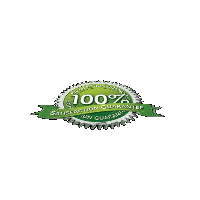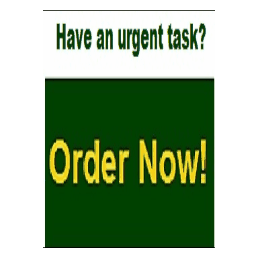How would you describe your experience with mathematics in formal educational settings?
Interviews
Interview 1
Interviewee: Ashkar
1. How would you describe your experience with mathematics in formal educational settings?
I generally like Math. Economics includes a lot of Math which is what makes it important, in my opinion.
2. Do you think your attitude towards mathematics would have been different if your experience was different, in terms of courses, teachers, etc.?
3. What are some other practices that you disliked in mathematics classes?
4. What are some of the skills that you feel you lacked due to the way mathematics was taught?
5. What are some of the skills you feel you gained after your experience with mathematics in formal educational settings? (like in calculus classes or general math classes)
6. Are there any mathematical skills that you didn’t acquire during formal education, and did later on in a non-formal setting?
7. How did your teachers affect your attitude towards mathematics?
8. In what ways did your experience with mathematics affect your choice’s major?
9. Was there a career that you would’ve liked to pursue but couldn’t due to your achievements in math?
10. In what ways do you feel that this course affected your mathematical thinking skills?
11. Can you tell me of everyday situations where you use mathematics?
12. Did this course help you become aware that you use mathematics in these situations?
13. Describe how you think mathematics is useful in our everyday life?
14. What do you think it takes to become good in math?
15. What do you think will take you to the level of confidence in mathematical skills? Or do you already see yourself confident?
16. How do you think confidence in math affects your achievement in it?
17. How do you think confidence affects one’s choice in their choice of career?
Interview 3
Interviewee: Isaa
1. How would you describe your experience with mathematics in formal educational settings?
I dislike it. I dislike it! It’s boring and all about rules that we must follow.
2. Do you think your attitude towards mathematics would have been different if your experience was different, in terms of courses, teachers, etc.?
Ofcourse! If I had liked it, I would have pursued a major in Engineering, for instance.
3. What are some other practices that you disliked in mathematics classes?
The assignments, the tests and not understanding a lot of the stuff. So much rules!
4. What are some of the skills that you feel you lacked due to the way mathematics was taught?
Physics, for example. I was poor at physics because my Math wasn’t good.
5. What are some of the skills you feel you gained after your experience with mathematics in formal educational settings? (like in calculus classes or general math classes)
Basics
6. Are there any mathematical skills that you didn’t acquire during formal education, and did later on in a non-formal setting?
Yes. I learned accounting in an internship not in class.
7. How did your teachers affect your attitude towards mathematics?
I won’t just sit and listen to rules being narrated and have to memorize them. I can’t concentrate like this. All the topics seem similar. Perhaps if my teacher was more engaging, I would have given her more attention.
8. In what ways did your experience with mathematics affect your choice’s major?
I dislike Math and this is why I chose to major in Business. Unlike engineering, business doesn’t include physics and calculus.
9. Was there a career that you would’ve liked to pursue but couldn’t due to your achievements in math?
Not sure; Maybe architecture.
10. In what ways do you feel that this course affected your mathematical thinking skills?
The course is new. This is what I consider not boring. It’s a good course and it requires me to use Math but to reach solutions for another topic.
11. Can you tell me of everyday situations where you use mathematics?
We calculate when paying for anything and buying anything. For instance you can calculate how much you bought, how much money you have left and how much your remaining money can buy. If I make 5 pounds today and I spent 50 pounds, I will have no money left for the rest of the day.
Anything else on your mind?
Or if I want to get to class, I must head out 5 minutes in advance.
Or if I have studying to do, I can calculate how much time I can sleep. I must calculate whether to sleep one or two hours so I can leave time for studying.
12. Did this course help you become aware that you use mathematics in these situations?
Sometimes.
13. Describe how you think mathematics is useful in our everyday life?
Similar to what we discussed earlier.
14. What do you think does it take to become good in mathematics?
To have the basic knowledge and then practice, practice, practice.
15. What do you think will take you to the level of confidence in mathematical skills?
It’s too late! I don’t know. Maybe if I can master the fundamentals well, then build on them step by step while understanding each of the steps well, then I’d be confident.
16. How do you think confidence in math affects your achievement in it?
Being confident would give me perseverance to continue trying harder and more.
17. How do you think confidence affects one’s choice in their choice of career?
It’s the same story. Confidence makes a person keep trying harder. Even if he didn’t succeed, confidence gives the ability to keep on trying.
Interview 5
Interviewee: shehab
1. How would you describe your experience with mathematics in formal educational settings?
Good at calculus. Overall good background
2. Do you think your attitude towards mathematics would have been different if your experience was different, in terms of courses, teachers, etc.?
Could be
3. What are some other practices that you disliked in mathematics classes?
4. What are some of the skills that you feel you lacked due to the way mathematics was taught?
Maybe how to apply mathematics in real life situations.
5. What are some of the skills you feel you gained after your experience with mathematics in formal educational settings? (like in calculus classes or general math classes)
6. Are there any mathematical skills that you didn’t acquire during formal education, and did later on in a non-formal setting?
I think I acquired most of them
7. How did your teachers affect your attitude towards mathematics?
Some of them use to encourage me.
8. In what ways did your experience with mathematics affect your choice’s major?
It affected me because I majored inEconomics as it has a lot of numbers. I could have declared business but I chose economics
9. Was there a career that you would’ve liked to pursue but couldn’t due to your achievements in math?
I could have majored in Engineering
10. In what ways do you feel that this course affected your mathematical thinking skills?
Not that much.
11. Can you tell me of everyday situations where you use mathematics?
12. Did this course help you become aware that you use mathematics in these situations?
13. Describe how you think mathematics is useful in our everyday life?
14. What do you think it takes to become good in math?
15. What do you think will take you to the level of confidence in mathematical skills? Or do you already see yourself confident?
16. How do you think confidence in math affects your achievement in it?
17. How do you think confidence affects one’s choice in their choice of career?
Interview 6
Interviewee: Yara
1. How would you describe your experience with mathematics in formal educational settings?
I used to like Math in school. In college, I took a math 100 course because I was planning to major in Economics but then I changed my mind because I found it much more complicated. I used to generally like math and scored 750/800 on my SAT.
2. Do you think your attitude towards mathematics would have been different if your experience was different, in terms of courses, teachers, etc.?
Yes, surely it would have been different.
3. What are some other practices that you disliked in mathematics classes?
It has some complicated equations.
4. What are some of the skills that you feel you lacked due to the way mathematics was taught?
……….(skipped)
5. What are some of the skills you feel you gained after your experience with mathematics in formal educational settings? (like in calculus classes or general math classes)
I now major in Political Science so I don’t take any Math classes, however my school math is what keeps me going in my economics minor, particularly Differentiation and Integration.
6. Are there any mathematical skills that you didn’t acquire during formal education, and did later on in a non-formal settings?
No. In Economics 216 course, I learned integration. It wasn’t really covered much in school.
7. How did your teachers affect your attitude towards mathematics?
I have a personal experience with Math. I used to dislike it till grade 4. Then in grade 7 I had a teacher who made me like it, then in grade 10 another teacher also make me like it. In college, my economics 216 professor made me like it. They teach us the methods well and make things seem well.
8. In what ways did your experience with mathematics affect your choice’s major?
Math has no connection whatsoever to my major.
9. Was there a career that you would’ve liked to pursue but couldn’t due to your achievements in math?
No.
10. In what ways do you feel that this course affected your mathematical thinking skills?
It makes me look at a problem differently and learn to use math in normal life, or think of a problem I am going through. It even helps in my major.
11. Can you tell me of everyday situations where you use mathematics?
In the supermarket. When I have a shift, or when my friends have shifts, I assist them with the calculations. That’s it. I don’t use math a lot in life.
12. Did this course help you become aware that you use mathematics in these situations?
Yes.
13. Describe how you think mathematics is useful in our everyday life?
We use Math directly and indirectly. For example, it helps you decide things like which gate to enter from depending on distance. Also during purchasing.
14. What do you think it takes to become good in math?
mmmm…mmmm…if you can keep it in your head and recall it. If you can see the positive sides of it not the negative. I don’t think it’s as complicated as people think it is.
15. What do you think will take you to the level of confidence in mathematical skills? Or do you already see yourself confident?
I already feel confident.
16. How do you think confidence in math affects your achievement in it?
…….I don’t use it a lot, sometimes in class. I usually feel nervous in math tests.
17. How do you think confidence affects one’s career choice?
Ofcourse it does affect it. Some people go into interviews feeling very nervous and different. They give nervous replies and can end up losing a job they want because they did not appear relaxed and at ease with their interviewer.
You Need a Professional Writer To Work On Your Paper?

Have any Assignment?








